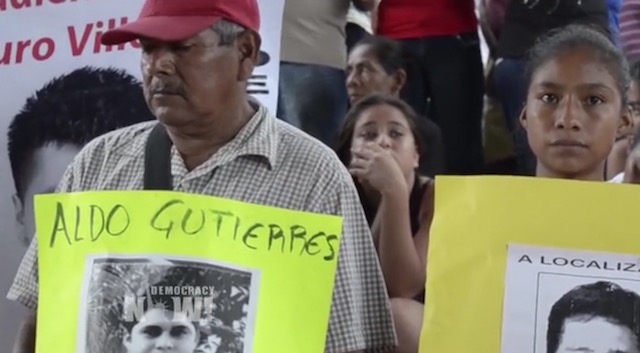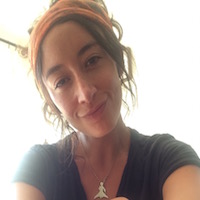
I still often think about what happened in Mexico the night of September 26, 2011.
When I do, my heart sinks, and the same feelings of lost hope flood back into my consciousness.
The reports describe a night of blood and terror in Iguala, Guerrero, one of the poorest and most violent states in the country.
Allegedly, Mexican law enforcement officials and other gunmen were responsible for the disappearance of 43 undergraduates at the Escuela Normal Rural Raúl Isidro Burgos (a teachers college in Ayotzinapa) and the death of another six people, including three students, a 15-year-old soccer player and many wounded.
The whole incident has been labeled as an organized crime related event because the authorities have linked the Iguala police force to a drug gang. But to this day, the reason for the abduction of these students remains a mystery.
I remember scrolling through the news; there were so many mixed stories and confusion. The police had blocked and shot at the buses in which the students were traveling to attend a march in Mexico City to commemorate a student massacre that had occurred in 1968.
I remember the fear and the anger crawling through my spine as I continued to read, but this wasn’t the first time I was reading about the violence caused by the drug cartel wars in Mexico. I believe that every Mexican has experienced this violence in some way; it is horrible, but we have all lost someone—a relative, a friend, a coworker.
This war has been going on for 10 years and so far it has left 30,000 missing, 160,000 killed and over 500,000 displaced. No, this was not something new for me, but it still hurts, because things don’t seem to change.
The State remains all-powerful; the police force is still corrupt to the core, acting more like heartless mercenaries than protectors of the people; because the humane societies have not been able to find out what really happened; because the families of the lost students continue to speak for everyone that has lost someone and do not get any answers about the whereabouts of their loved ones; because we all have been through enough.
It has been a little over two years and there is no sign of those bodies. You can walk down the streets of any major Mexican city and chances are you will still find a wall or two with graffiti that reminds us that, “We are still missing 43,” but the thing is, we are actually still missing thousands.
The 43 young men have become the symbol of the thousands. Mexico has become a massive graveyard, hundreds of other bodies have been dug up, common pits with the nameless and the forgotten. There are 130 people arrested and under investigation for this crime. We hear different horror stories and theories, but still we do not know what exactly happened to these students.
Seeing this in the news and media has become a horrific routine. Let’s not become used to death. Let’s not become used to fear and injustice. Let’s stop blaming and hating, but also, let’s not become blind.
Collectiveness is a great power. It can help keep our minds and hearts busy with kindness and gratitude. Become aware of the little things we can do, become aware of what is happening around us, who is in need of love, the smallest practices make the biggest differences. If we want the State, the police, the country to change, we have to start from within by loving more, caring more, giving more. Let us start digging up hope from the bottom of our souls.
And please keep praying (whatever religion you practice), keep lighting candles, keep searching, keep marching, keep asking for answers, asking for justice, keep hoping, waiting and writing because: “They took them alive, we want them back alive.”
Author: Montse Leon
Images: Democracy Now!
Editor: Travis May











Read 0 comments and reply